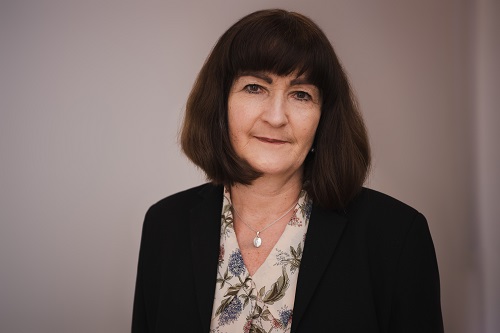The conclusion of the UK Prime Minister’s statement to Parliament on the government’s plan for ‘living with Covid’, in which he set out the rationale for lifting all legal restrictions in England, bears repeating, I think.
Opinion
Newfound Covid ‘freedoms’ are a privilege and should be handled with care
Speaking to MPs on 21 February, Boris Johnson said: “We don’t need laws to compel people to be considerate to others. We can rely on that sense of responsibility to others, providing practical advice in the knowledge that people will follow it to avoid infecting loved ones and others.
“So let us learn to live with this virus and continue protecting ourselves and others without restricting our freedoms.”
This spirit and the sense of personal responsibility the Prime Minister is calling on here is hard to argue with.
 Mike Robinson: "It is in nobody’s interests to see large numbers of Covid outbreaks in workplaces, which will ultimately curb everyone’s freedoms."
Mike Robinson: "It is in nobody’s interests to see large numbers of Covid outbreaks in workplaces, which will ultimately curb everyone’s freedoms."
Indeed, his point about people being given practical advice and deciding for themselves underpins much of our public health policy.
Even health and safety best practice relies on people using their own judgment, particularly when it comes to personal risk, and the direction of travel in the sector is that individuals should be increasingly trusted to assess risk for themselves and able to make their own decisions, having been given the best available information. Safety should be seen as a business ‘outcome’, not just another process.
Now that most people are vaccinated and Omicron has proven to be milder than first feared, the government has decided much of the ‘architecture’ around our decision-making can be removed.
Taking any scaffold or support away is never easy. Think of any building or extension work or learning to ride a bike using stabilisers. That’s why some elements in this Covid plan – like day one Statutory Sick Pay and Employment Support Allowance – will remain in place at least temporarily, while others have already been taken away.
Two that have gone will impact on employers and their staff. On the one hand, routine contact tracing has ended, so contacts will no longer be required to self-isolate or advised to take daily tests. On the other, people will no longer be legally obliged to tell their employer when they are themselves required to self-isolate.
Taking away both leaves it up to employers and their staff to work out how best to act, at least until the government replaces the current ‘Working safely during coronavirus (Covid-19)’ guidance, which it will on 1 April.
That’s why I have said that it’s vital we all remain cautious, and I called on employers to continue to allow their staff to take time off when they test positive or have Covid symptoms.
No one wants to see infections rise again or spiral out of control. It is in nobody’s interests to see large numbers of Covid outbreaks in workplaces, which will ultimately curb everyone’s freedoms, as well as harm productivity and the economy.
Any good risk assessment is kept under review and updated regularly. I think the government should do the same with its plan for ‘living with Covid’.
Just as, at the end of last year, a ‘Plan B’ was required to tackle Omicron, it would be sensible for us all to consider our newfound ‘freedoms’ as a privilege, not a right, which may have to be given up should the circumstances change again.
I agree with the Prime Minister that we shouldn’t have to rely on laws to guide responsible behaviour, but as we have all seen only too clearly in the past two years, sometimes it is necessary to curb our own freedoms a little for the good of the whole.
Mike Robinson FCA is Chief executive of the British Safety Council
OPINION

Battery Breakdown e-bike fire safety campaign: where are we two years on?
By Lesley Rudd, Electrical Safety First on 03 July 2025
The Product Regulation and Metrology Bill currently before Parliament offers the opportunity to reduce the fire risks posed by sub-standard e-bikes, e-scooters and their lithium-ion batteries, but the Government needs to go further and faster to protect public safety.

The building safety crisis: a year of Labour in power, still no end in sight for leaseholders
By Campaign team, End Our Cladding Scandal on 01 July 2025
It’s a year since Labour came to power with manifesto commitments to fix the failed approach to the cladding and building safety scandal and deliver meaningful change.

Rethinking workplace wellbeing for a new era
By Kate Field, BSI on 16 June 2025
Today’s workers increasingly value the flexibility to pick the most suitable working model for their needs – whether this be hybrid, fully remote or site-based. However, new BSI research shows a more important consideration is working for an organisation that genuinely prioritises employee wellbeing, offers development opportunities and encourages staff autonomy.



